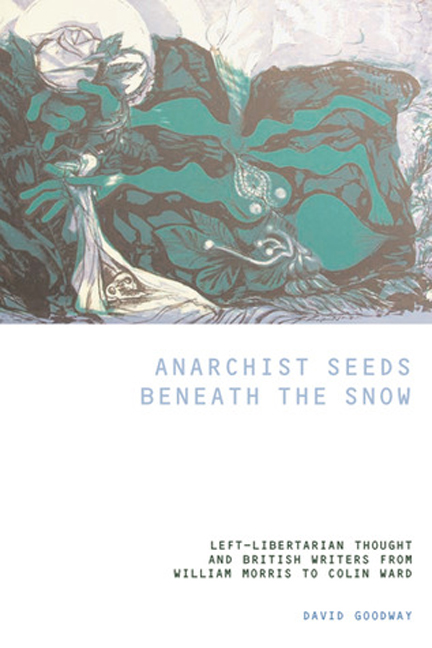 Anarchist Seeds Beneath the Snow
Anarchist Seeds Beneath the Snow Book contents
- Frontmatter
- Contents
- Dedication
- Acknowledgements
- Abbreviations
- 1 Introduction
- 2 Anarchism and libertarian socialism in Britain: William Morris and the background, 1880–1920
- 3 Edward Carpenter
- 4 Oscar Wilde
- 5 John Cowper Powys I: His life-philosophy and individualist anarchism
- 6 The Spanish Revolution and Civil War – and the case of George Orwell
- 7 John Cowper Powys II: The impact of Emma Goldman and Spain
- 8 Herbert Read
- 9 War and pacifism
- 10 Aldous Huxley
- 11 Alex Comfort
- 12 Nuclear disarmament, the New Left – and the case of E.P. Thompson
- 13 Christopher Pallis
- 14 Colin Ward
- 15 Conclusion
- Bibliography
- Index
11 - Alex Comfort
- Frontmatter
- Contents
- Dedication
- Acknowledgements
- Abbreviations
- 1 Introduction
- 2 Anarchism and libertarian socialism in Britain: William Morris and the background, 1880–1920
- 3 Edward Carpenter
- 4 Oscar Wilde
- 5 John Cowper Powys I: His life-philosophy and individualist anarchism
- 6 The Spanish Revolution and Civil War – and the case of George Orwell
- 7 John Cowper Powys II: The impact of Emma Goldman and Spain
- 8 Herbert Read
- 9 War and pacifism
- 10 Aldous Huxley
- 11 Alex Comfort
- 12 Nuclear disarmament, the New Left – and the case of E.P. Thompson
- 13 Christopher Pallis
- 14 Colin Ward
- 15 Conclusion
- Bibliography
- Index
Summary
At first sight it may seem bathetic to follow a chapter on Aldous Huxley with a discussion of Alex Comfort, that theirs is a grossly unequal proximity: Huxley one of the most admired and widely read novelists of the first half of the twentieth century and Comfort a mere sexologist. Yet although the brilliant dystopian Brave New World continues to impress, Huxley's formerly vastly admired novels of the 1920s – Crome Yellow, Antic Hay, Those Barren Leaves, Point Counter Point – hold up much less well. On the other hand, Comfort's achievements as a pioneering scientist and acclaimed creative writer have been obscured by the extraordinary international success of The Joy of Sex; and a reassessment of his best novels – The Power House and On This Side Nothing – and most distinctive poetry – The Signal to Engage and And All But He Departed – is much overdue.
Huxley and Comfort also have a great deal in common. They were both polymaths. They had a background and/or interests in biology and medicine. They both became active pacifists and stalwarts of the Peace Pledge Union (PPU). For both it was their pacifism that led them to anarchism. Although neither were socialists, both were influential in the development of a new anarchism of the late-twentieth century, grounded not in class conflict and economics, but in biology, psychology, ecology and alternative technology. Both men had a more than usual interest in sexuality (or certainly were not afraid to express it). Both emigrated to California, where each was to write on mystical and religious experience. And while Comfort never shared Huxley's interest in drugs, it is otherwise the congruities that are striking, similarities which link the personalities and careers of two maverick, very atypical Englishmen.
Alex Comfort was born in Edmonton, Middlesex, in 1920, the son of Alexander Comfort and his wife, Daisy (née Fenner), and was brought up in New Barnet. Both parents came from working-class families yet, upwardly mobile, they took degrees at Birkbeck College, his father becoming Assistant Education Officer at the London County Council, and his mother a teacher of modern languages. Their son won a scholarship in 1932 to a public school, Highgate, which he attended as a day-boy and where he was a classicist and a prodigiously successful pupil.
- Type
- Chapter
- Information
- Anarchist Seeds Beneath the SnowLeft-Libertarian Thought and British Writers from William Morris to Colin Ward, pp. 238 - 259Publisher: Liverpool University PressPrint publication year: 2006
